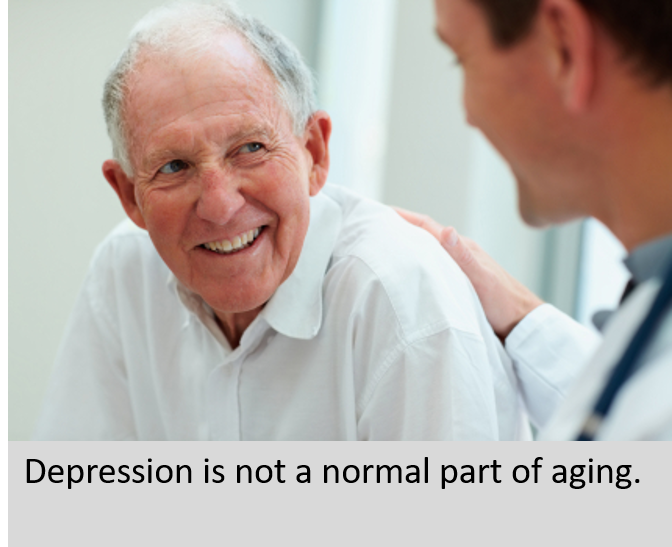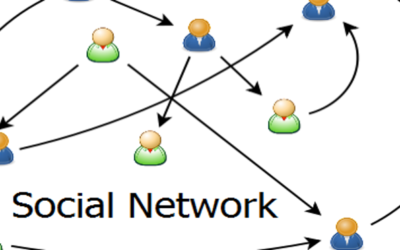
We may believe that getting older means getting depressed.
We may think it is a normal part of aging and accept it.
But it is simply not the case. Most of us are living longer and more independently than previous generations.
So if you are feeling depressed – or suspect that a loved one is suffering from depression – it is not a normal part of aging.
The Depression Landscape
In Canada, the rates of depression in seniors are typically between 5 and 10%. However, that skyrockets to rates of 30% to 40% when focused on seniors living in assisted living or long term care facilities. Successful treatment of depression is possible. The majority of individuals who suffer from depression, however, will not seek out treatment. While there are many factors, one of the significant ones is the natural impulse to be independent and work through our own challenges. Individuals suffering from depression may not even recognize they are depressed or that treatment is possible.
In a refreshingly honest blog post, Seth Adam Smith writes about his struggles with depression and how his wife’s empathy was the significant factor in helping him deal with his depression.
He writes, “Depression thrives in secrecy but shrinks in empathy. If you know someone that is struggling with depression, the best advice I can give you is to love them and empathize with their pain. The empathy, coupled with your encouragement, will open the door to other solutions.”
Individuals dealing with dementia – either as sufferers or as caregivers – have a higher likelihood of suffering from depression. I believe that spending time listening with an empathetic ear is the best way to help individuals in that situation. Everything is more bearable if we do not feel like we are alone. Sometimes we don’t approach people in pain because we don’t know what to say – and so we do nothing. But something is better than nothing and your friends or family will see the good intention behind your words and listening heart.
How Can You Recognize Depression?
Being depressed is more than just feeling sad. Depression affects the entire person – both mentally and physically. It also lasts for a long time. It is important not to ignore depression, since it typically does not go away on its own. And remember depression can be successfully treated.
There are four areas where you might notice signs of depression: physical changes, behavioural changes, changes in thinking patterns and changes in feelings. Physical and behavioural changes are easy to observe externally, however you will need to rely on the individual’s self-reporting for the changes in thinking patterns and feelings.
Physical Changes
Some key areas to pay attention to are sleep and sleep patterns. individuals who are depressed may have trouble falling asleep, may wake often or not be refreshed after sleeping. They may also experience changes in appetite. So pay attention to significant weight gain or weight loss.
You may also observe energy changes. An individual may have significantly decreased energy, be feeling weak or be experiencing fatigue. On the other end of the scale, there may be an increase in restlessness and agitation.
Behavioural Changes
If you notice patterns of withdrawal from social and leisure activities or an inability to make important decisions, that may also indicate depression. Neglecting regular duties around home or personal care can also be signs of depression. Increased use of alcohol or drugs is another warning flag.
Changes in Thinking Patterns
When individuals are depressed, decision-making is difficult and often avoided. You may find a preoccupation with perceived failures or personal inadequacies that lead to a loss of self-confidence. Individuals may also be very self-critical and unfairly judgmental. The ability to process information may slow down or be confused.
When looking at these warning signs (particularly confusion and the inability to process information) you can see why an individuals’ depression may be misinterpreted as a cognitive impairment. And in fact, they do have a cognitive impairment – but it is treatable.
Changes in Feelings
Physical, behavioural and thinking pattern changes are closely linked to changes in feelings. An individual may feel worthless, hopeless or have unreasonable bouts of anger and impatience. They may lose interest in activities that were once a source of pleasure to them.
Taking Action
It is important to treat depression. Leaving someone to suffer with depression can rob you of months or years of a positive relationship with that individual. Seeking medical treatment is the first and obvious choice but there are other things that you can do to support the person you love.
Build Their Social Network
More and more individuals in their senior lives spend their time alone. They may go days without seeing or talking to another person. While our social networks change as we age, we have to keep an eye on them so that they remain healthy. Family members do grow up and move away but creating a schedule to touch base with mom or dad is a good idea. Maybe you each have a day that you call and check-in with your them. This may feel a bit awkward or contrived but we are all so busy. I find it pretty easy for days or weeks to pass by without really lifting my head above my own daily concerns. So talk with your siblings and make a schedule to call.
Retirement from a professional career can take your mom or dad out of the mainstream of working life. But they can maintain their professional network by meeting regularly with retired colleagues. Often it just takes one individual to organize it. The event can be as simple as sending out an email setting a time and place to meet at the local coffee shop. Your mom or dad may appreciate some help in getting it organized. Sending the monthly group email for them could be a simple way of supporting their social network.
Finally,encourage them to branch out into new areas. Help them research and make contact with interesting activities or organizations. A new group based on a shared interest that appeals to them – like a book club, choir, bridge group or gardening club – can be a whole new set of friends.
Get Physically Active
Research has found that moderate aerobic exercise and strength training (lifting weights) has an impact on treating depression in seniors. Exercise has so many benefits for us as we age. Exercise keeps our skeletal structure strong, reduces the risk of falls and improves the ability of our brain to function. There is such an overwhelming amount of research in this area that it cannot and should not be ignored. So get your mom or dad moving.
There are lots of exercise programs at recreational centers that cater to older adults. Not only will this help their bodies but it is also an opportunity to meet new friends and strengthen social networks.

Get Mentally Active
Just like exercising your body is important for your body, exercising your mind is important for your brain. Engaging in mentally challenging activities is important to maintain cognitive fitness. Your mom or dad may enjoy playing chess or bridge. They may enjoy logic puzzles or cryptic crosswords. It is important to find mentally engaging activities that are novel and complex to continue to build cognitive resilience. [For more on that topic check out our blog post on HealthStatus]
One fun way to maintain mental engagement is to sign up for the Fit Minds Rewire Program. A daily email brings to your inbox a short mental challenge. Sign up your mom or dad – and yourself – and share your answers with each other. It is a great way to interact and also can serve as an early warning sign of cognitive struggles. You can sign up here.
Depression should not go untreated. If you suspect your mom or dad is depressed, encourage them to see their family doctor. But don’t stop there. Look at other ways to continue to support them as they age. Don’t deprive yourself or your children of a meaningful relationship with them.




0 Comments